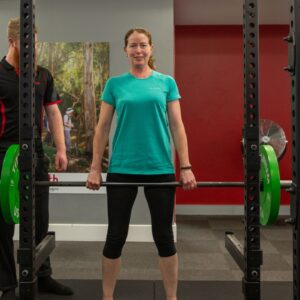Is it normal for your body to be sorer in winter?
Winter is here again for another year and as we know that brings colder weather, rainy days and the desire to rug up for extra warmth. The cooler weather tends to highlight many statements from people regarding their body feeling sorer than that in warmer months. This article will explore many factors and reasoning behind the soreness and stiffness we may feel in winter and whether this is normal and justified.
End to daylight savings and reduced sunlight
As we know in winter, daylight savings is no longer present. This causes the sun to set much earlier than in the summer months and expressing a reduction in natural sunlight. Sunlight is closely tied with our human biology and involves a hormone called melatonin. Melatonin is produced by the pineal gland in the brain and regulates sleep and wakefulness. With the reduction in natural light in winter, this causes melatonin to be secreted in higher amounts and has the potential to cause fatigue and tiredness. As a result, it is completely normal to feel slightly sluggish and unmotivated to conduct normal exercise routines and daily movement activities.
Lack of motivation, fatigue and decreased movement
Hitting the snooze button more regularly in winter? You’re not the only one. Everyone will experience periods of this behaviour especially when its chilly and our beds are cozy and warm. Decreased motivation and fatigue can contribute to an array of problems and create a reduction in the amount of movement we do within our day to day lives. The requirement for our bodies to function optimally is regular movement without long periods of sedentary behaviour. The urge to reach for that blanket, grab some snacks and binge movies on Netflix might be higher in winter but it requires self-control and regulation in small quantities. This can cause a dangerous cycle of negative movement patterns compared to our normal ones seen within the warmer months.
Change in posture and the effect on our muscles and joints
Geez its chilly and I’m finding myself all hunched up trying to keep myself warm, this is normal right? Absolutely it is, yes! Interestingly the cold can affect our posture and our muscles in ways that are worthwhile knowing, allowing us to better understand our bodies and how we can ensure we are feeling and functioning the way we wish without pain, tightness and fatigue. The cold weather directly affects our posture causing our shoulders to round and hunch over, known as kyphosis. Also, we tend to increase the movements of raising our shoulders up towards our ears and pushing our heads forward. We will almost always adapt our posture to keep our body temperature constant at around 37 degrees.
Our body will sacrifice maintaining the oxygenation of blood to the extremities and skeletal muscles for maintaining our temperature of our organs. This postural adaptation can contribute to overloading the musculoskeletal system and developing myofascial pain.
Tips to overcome soreness, fatigue and decreased motivation in winter:
- Exercising is the key to increasing our body temperature, particularly resistance and/or reformer pilates training as it increases our thermogenic rate in which accelerates our metabolism and has a positive effect on hormonal regulation.
- Get outside and gain more sunlight exposure every day. As mentioned above within the reduced sunlight and melatonin behaviour in winter, we can easily increase our sunlight exposure by getting out in the outdoors and soaking up 10-15 minutes per day. Go for a short walk and wander outside for 10-15 minutes and not only are you increasing your sunlight exposure and increasing your physical activity, but you are also enhancing the absorption of vitamin D which is an essential vitamin required for many human body functions.
- Making exercise, stretching and mobility work a higher priority. With the reasons as to why we are sorer in winter outlined above, we need to focus on incorporating exercise, movement and stretching/mobility work as part of our weekly routine. Our mindset needs to adapt to the cold weather, increasing our positivity towards normal movement patterns and postural awareness.
- Sounds simple and straight forward but rug up and wear layers of clothing, especially woollen materials. Wool is more insulating and retains more heat than cotton so should be your material of choice in winter. Cover up your head and neck as we lose most of our body temperature through our head and neck so rug up in these areas
If we listen to our body in relation to what symptoms we are experiencing, then this will guide us to know whether we can help ourselves or when it’s time to ask for help.
Please make sure to ask any of our friendly clinicians at MD Health who can give you advice on exercises and stretches to the specific regions you are feeling discomfort to help your body throughout the cooler months of winter. Stay warm and healthy everyone!
Do you have any questions?
- Call us on (03) 9857 0644 or (07) 3505 1494 (Paddington)
- Email us at admin@mdhealth.com.au
- Check out our other blog posts here
Our clinical staff would be happy to have chat if you have any questions.
Take the first step to a healthier you!
Would you prefer for someone to contact you to book your FREE Full Body Assessment*?
Please fill in this form and someone from MD Health will be in touch with you soon.
Alternatively please call us on:
07 3505 1494 (Paddington – Brisbane (QLD) Clinic)
Or email us:
admin@mdhealth.com.au (VIC) paddington@mdhealth.com.au (QLD)
*Please note only the Full Body Assessment is a FREE service. The Full Body Assessment is for new clients at MD Health or returning clients who haven’t been in for 6 months or longer who intend to particpiate in our 13 Week Clinical Pilates Program**.
For all new clients who wish to come in for a one-off, casual or adhoc basis for Physiotherapy or Exercise Physiology the Initial Physiotherapy or Initial Exercise Physiology appointment is a paid service.
** The 13 Week Clinical Pilates Program at MD Health is not a lock in contract and you are not required to attend for the full 13 weeks if you do not wish.
This site is protected by reCAPTCHA and the Google Privacy Policy and Terms of Service apply.




